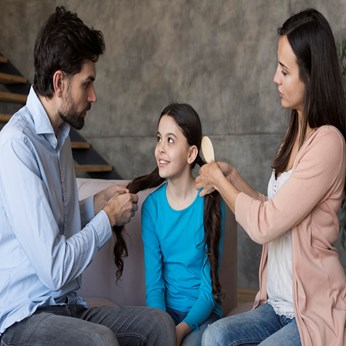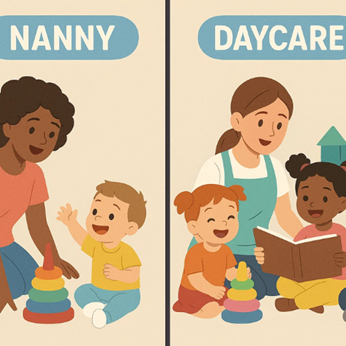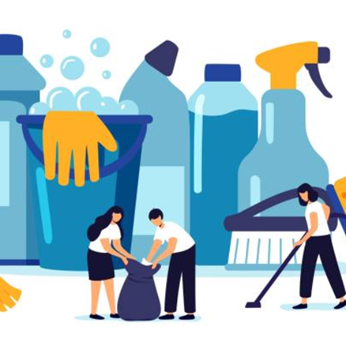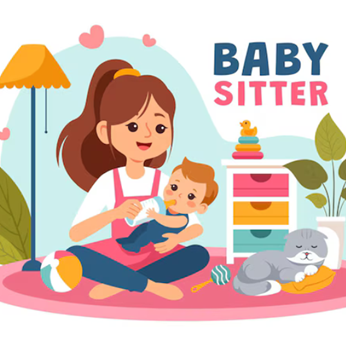7 Popular Myths About Home Care For Elders
Many elders need home care after a major sickness, surgery, stay in hospital or after disabling ailments like arthritis or rheumatism strike them; while some avail of such help as god sent, some worry about letting a stranger inside their houses. Here are some popular myths about homecare for elders by caregivers.
Here are 7 popular myths and reality about home care for elders:
Myth 1: Only really old people need home care.
Reality: It is true that many who utilize home health care are 65 years and above, but they can also be utilized by younger people when they are recovering from an injury or dealing with a chronic ailment.
Myth 2: Nurses and home care workers don't care about their patients.
Reality: Not necessarily; most nurses, therapists and home care workers establish a rapport with the elder to make them feel at ease, understand their hesitations and make the experience as comfortable as possible. Most good home health care agency analyze the elder’s need before placing a caregiver who is well prepared and suited to meet the elder’s particular needs. In case of dissatisfaction you could contact the agency immediately, request another home care worker or even look for another agency.
Myth 3: Home care workers steal from elderly and/or abuse them.
Reality: This may be true of unskilled, independent caregivers or sitters that are not hired through a home health care agency. Ask the company if they conduct criminal background checks on all employees before hiring; also ensure the company is licensed and bonded. It is best to ask an agency how it trains the home health care workers and whether the employees are certified. Also ensure that the agency provides a supervisor to evaluate the quality of home care on a regular basis.
Myth 4: Home care is only for people who are very sick.
Reality: It’s true that home care is needed by those that are sick or during post operative care like post-operative rehabilitation, wound care, mobility training, pain management or IV therapy or injections. But home care can also be for non-medical reasons like extra help and attention around the house like eating, dressing, bathing, housework, driving and shopping.

Myth 5: Quality of home care provided at home is inferior compared to other facilities.
Reality: Not necessarily, home care staff of good agencies receives extensive training before they ever enter a person's home. It is common to find many well versed in advanced medical treatments such as intravenous therapy and ventilator care. You could ascertain this by asking them a lot of questions like whether the agency train caregivers, what the training entails and if they are well versed in elderly health conditions and certified in CPR.
Myth 6: Home care is affordable only by wealthy people.
Reality: Not necessarily; home care has turned affordable for many families with new programs like reverse mortgages, VA benefits, long-term care insurance, and access to state and local programs such as Medicaid.
Myth 7: My parent only needs help with basic hygiene, so we don't qualify for homecare.
Reality: Besides basic needs home care providers could assist you in a full range of homecare, from basic peer-level companionship and hygiene assistance to highly skilled nursing and therapy.
Image Courtesy: Google
Take the next step toward your goals
Share your requirement and find the best care providers in your area
-
Looking for a caretaker’s job? Build your profile and get in touch with families in your vicinity.
-
Discover nannies, babysitters, cooks, housekeepers, pet sitters, and elder care under one roof.
-
Get all the support you need to run a successful care center.
-
Search for appropriate centers near you depending on your needs.
Care Corner Insights: Blog Library

What is Conscious Discipline? How Parents and Caregivers Can Use It
In a world full of parenting advice, sticker charts, and timeout corners, Conscious Discipline stands out as a game-changer. It’s not just a method—it’s a mindset. And for parents and caregivers

Nanny vs. Daycare in Naperville, IL: What Works Best for Indian Working Couples?
Hey Naperville Parents! Balancing work and family life is no small feat—especially for Indian working couples trying to juggle careers, household responsibilities, and parenting. One of the biggest decisions you’ll face? Choosing between a nanny or

Housekeepers in Sugar Land, TX: Deep-Cleaning Checklists for Indian Homes
Housekeepers in Sugar Land, TX: Deep-Cleaning Checklists for Indian Homes Indian cooking = flavor + spices + love… but also oil splatters and stubborn stains. Time to reset! Degrease stovetops, chimneys, and exhaust fans. Scrub countertops, tiles,

12 Easy After-School Snack Ideas for Kids Who Get Hungry Quickly
School’s out, and the hunger hits hard! If your little ones come home ravenous and ready to raid the kitchen, you’re not alone. After-school snack time is prime time for refueling, recharging, and maybe even sneaking in a little nutrition. So here ar

Vegetarian Home Cook Services in Sunnyvale, CA: North & South Indian Meal Prep for Busy NRIs
Between work, family, and daily responsibilities, finding time to cook fresh meals can be difficult. That’s when a vegetarian home cook service in Sunnyvale makes life easier—bringing authentic North and South Indian dishes straight to your table. T

Hiring a Live-In Nanny in Plano, TX: A Practical Guide for NRI Households
For NRI families living in Plano, TX, raising children while managing work and household responsibilities can feel overwhelming. Many parents find that hiring a live-in nanny provides the right balance of support, convenience, and cultural comfort. U

Daycares in Fremont, CA for Indian Toddlers: Curriculum, Food Policies & Waitlists
You’ve probably met them — the parents at the park chatting about Montessori vs. play-based learning while handing their toddler a homemade paratha. The ones who ask every daycare in Fremont if they serve vegetarian meals. And yes, the ones who have

Babysitters in Jersey City, NJ for NRI Parents: Last-Minute, Weekend & Evening Options
You’ve probably seen them — the parents juggling grocery bags in one hand and a phone call to grandma in India in the other, while trying to keep their toddler from running into the road. The ones who cancel dinner plans because the babysitter bailed

Best Nanny Services in Edison, NJ for Indian Families: Costs, Language, and Cultural Fit
Edison, NJ, is home to one of the largest Indian communities in the U.S., and finding a nanny here often means looking for more than just childcare skills. For Indian families, cultural understanding, language fluency, and traditional values play a b

What Is Helicopter Parenting? How It Affects Children and Ways to Avoid It
You’ve probably seen them. The parents at the playground who shadow every move, wiping invisible germs off the slide before their child touches it. The ones who fill out job applications for their teens. And yes, the ones who email college professors